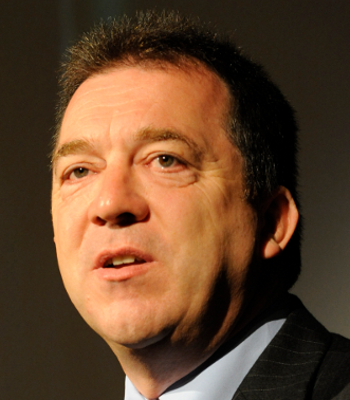IT would be no surprise if dissident groups staged an incident when world leaders come to Northern Ireland next month, according to security sources.
Ahead of the landmark G8 summit in Fermanagh, The Independent has reported that well-placed sources are aware of the threat posed by dissidents.
They say the existing groups could try to gain international publicity during the event by stirring sectarian trouble in the North, possibly by planting a hoax device.
Worldwide media attention will be shone on Northern Ireland in June when eight of the world’s most powerful leaders gather in Loch Erne Hotel.
The annual summit, which is hosted by a different G8 member each year, has attracted significant attention from protesters in previous years, including the 200,000-plus who marched in Edinburgh when Britain last held the G8 presidency in 2005.
British Prime Minister David Cameron announced that Fermanagh would host this year’s summit in November, saying: "I think this will be a brilliant advertisement for Northern Ireland.”
Police have already revealed that large areas of the county will be under virtual lock-down and a number of vehicle checkpoints will be created as thousands of demonstrators come to the North from around the world.
 PSNI chief constable Matt Baggott
PSNI chief constable Matt BaggottSpeaking to The Independent, PSNI’s chief constable Matt Baggott said security operations surrounding the G8 will involve most of his service’s 7,000 officers, as well as 3,600 police drafted in from England, Scotland and Wales and hundreds of civilian security staff.
He also warned that sectarianism will persist in the North until politicians are prepared to take bolder decisions to tackle the North’s underlying social problems of poverty and youth unemployment.
“Sometimes loud political voices don’t actually help,” Mr Baggott said. “Where I think politicians have a greater role to play is in addressing deep-seated social need as opposed to just dealing with the rhetoric of shared future.
“We need a lot more focused work in those difficult disadvantaged neighbourhoods where paramilitarism has its roots, to try and improve the life particularly of young people, and deal with the angst felt by working class Protestants and republicans. That has yet to happen.”
Unemployment in the North hit a 15-year high of 8.5 per cent earlier this year and record figures of 23.8 per cent were recorded for 18-24-year-olds, up almost eight per cent in a year.
The picture was made more bleak last week when the Institute of Fiscal Studies’ prediction that a third of children in Northern Ireland will be living in poverty by the end of the decade.
Mr Baggott added: “Sadly, terrorism in Northern Ireland is the backdrop against which the PSNI has to operate and it is a severe threat to colleagues, something we’ve been living with for years. We’ve invested over £200 million in counter-terrorism – money which should have been spent on issues such as social improvement.”
But, insisting that the policy has been successful, he said 166 people have been charged with terrorism offences in “the last few years” and claimed the groups are being broken up.
“But the problem is persistent, even if it is on a relatively small scale compared to the past,” the chief constable added. “They cannot and will not sustain a significant campaign, but they have the ability to cause us problems in day-to-day policing.”

